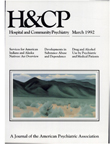Psychological and Behavioral Factors in Organ Donation
Abstract
Researchers agree that the public generally is favorably disposed toward organ donation. Although people show gaps in understanding about the process of donation (for example, most do not understand that the next of kin makes the final decision to donate organs), very few are opposed to the concept of donating organs. Particular circumstances, such as knowledge of the intentions of the deceased, can significantly alter the likelihood of donation.
Gaining a cross-national and cross-cultural perspective on organ donation is important. Issues of how to facilitate organ donation are being handled in diverse ways by different societies, but without the knowledge of mistakes experienced elsewhere. For example, legal changes in consent laws, such as instituting required-request or opting-out policies, have not reduced the shortage in various European countries (10), yet those same ineffective remedies are being implemented or seriously considered in the United States. (A required-request policy means that physicians must ask families to donate the organs of a recently deceased loved one; an opting-out policy permits donation of organs unless the deceased person had previously objected or, if the deceased had not expressed an opinion, the next of kin objects.) Similarly, cultural differences within the United States produce different views about donation, but, except for studies like McIntyre's analysis (11) of Hispanic views of organ donation, these views are not adequately understood.
A major portion of the organ donation bottleneck lies within the medical community. Nurses and physicians who have yet to come to grips with their own feelings about death and organ donation are unlikely to be effective in obtaining approval for organ donation from a grieving family. The discomfort of health professionals is reflected by their use of technical terminology and jargon, such as "harvesting of organs," that distances them from their own uncertainties (12).
Unfortunately, such terminology can lead to miscommunication with the families of potential donors. For example, referring to a loved one on "life-support" machines may make it more difficult for families to accept the finality of the condition. Much of the solution to the organ shortage will come from changes in the attitudes and behavior of the medical community.
Access content
To read the fulltext, please use one of the options below to sign in or purchase access.- Personal login
- Institutional Login
- Sign in via OpenAthens
- Register for access
-
Please login/register if you wish to pair your device and check access availability.
Not a subscriber?
PsychiatryOnline subscription options offer access to the DSM-5 library, books, journals, CME, and patient resources. This all-in-one virtual library provides psychiatrists and mental health professionals with key resources for diagnosis, treatment, research, and professional development.
Need more help? PsychiatryOnline Customer Service may be reached by emailing [email protected] or by calling 800-368-5777 (in the U.S.) or 703-907-7322 (outside the U.S.).



